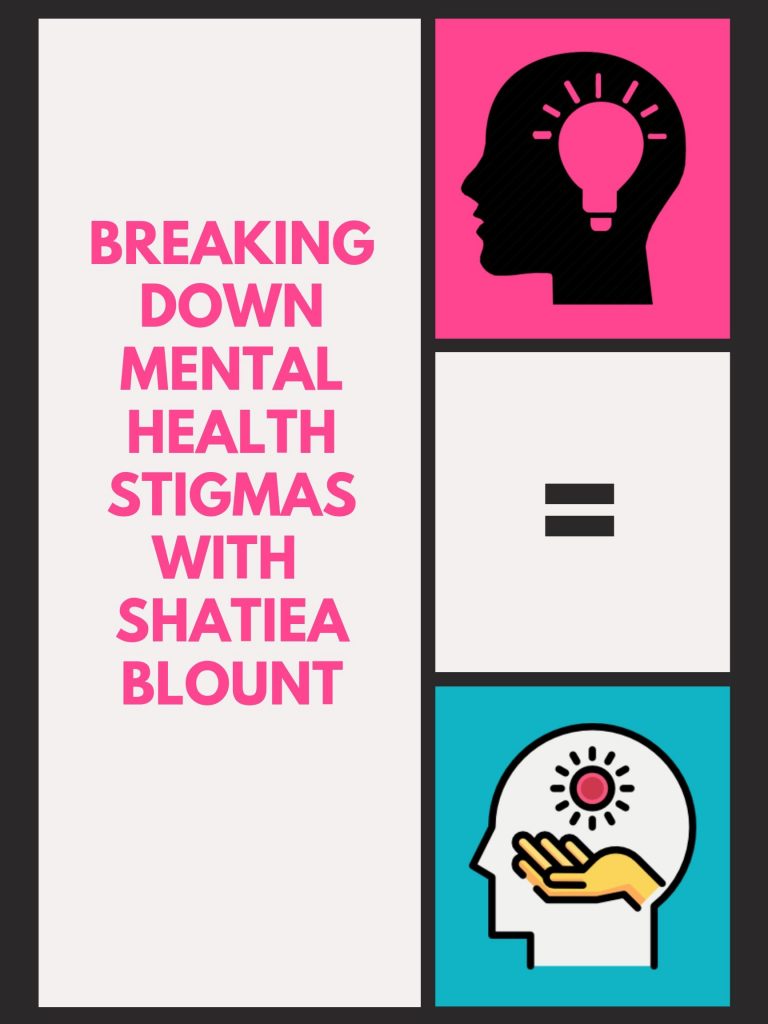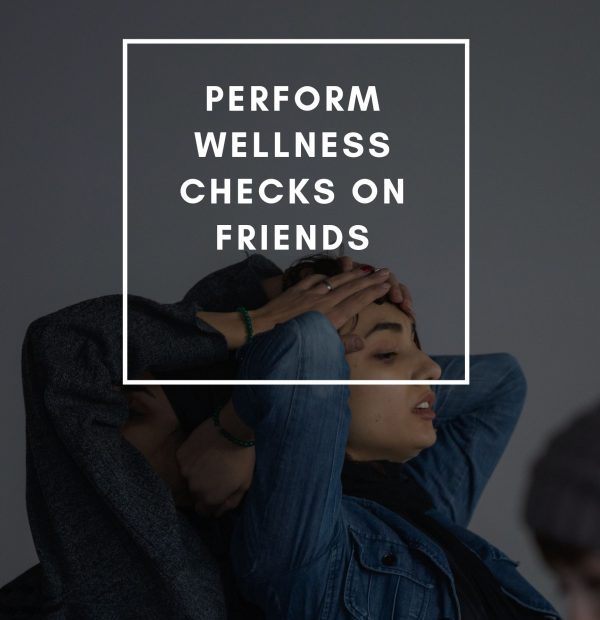Breaking Down the Stigmas of Mental Health
Everyone is vulnerable to mental health problems, which means everyone should be having a conversation about mental health and wellness. Historically, a stigma exists between people of color and mental health care. Asking for help can be challenging, but people of color often face historical and cultural barriers when trying to access mental health services. But when it comes to mental health, there seems to be a fear that talking about prevention somehow implies people with mental illness are at fault for their struggles.

On today’s episode of OEL the ladies and their special guest Shatiea Blount discuss the stigma surrounding mental health, life coaching and how people in communities of color are affected
Special Guest
On this episode of OEL the ladies interview Shatiea Blount, a licensed therapist and certified professional coach who specializes in breaking down big problems into small action steps. Shatiea is a smart, out-of-the-box thinker who loves taking care of people. She is a believer in truth and champions the healing of mental issues in communities of people of color. Shatiea found that becoming a therapist allowed her to provide help in ways that work and not in ways that were merely prescribed.
Therapist, Psychiatrist, Psychologist… What’s the difference?
Shatiea explained the difference between a therapist, psychiatrist and a psychologist. A psychologist often works in tandem with a psychiatrist, who is also a medical doctor and can prescribe medication if it is determined that medication is necessary for a patient’s treatment. A therapist’s goal is to help patients make decisions and clarify their feelings in order to solve problems. As a licensed social worker, she can practice therapy and does so independently. 
Shatiea noted that psychiatrists are medical doctors, but do less therapy than in the past. A session with a psychiatrist will usually last about 15-20 minutes, they assess a patient and will prescribe medication based on their diagnosis. A psychologist, on the other hand, uses a medical approach to therapy. While licensed professional counselors are also therapists, they do not have the mission for social justice that most social workers have.
Trends in Mental Health
The ladies asked about trends in mental health and if Shatiea had noticed any. She noticed the rise in people seeking help for their psychological problems. Additionally there is more awareness of mental health in the black community and how the topic has become more talked about. Shatiea has seen the rise in people of color considering therapy as a professional path. She noted that celebrities like Taraji P. Henson have become advocates and also promoting the importance of mental health.
5 Warning Signs of Mental Health Risks and Seeking Help
Questions arose regarding warning signs and what should be done if you or someone you know may need help. Shatiea stated that anyone can experience a mental disorder, they key is to pay attention and check on your friends and family. When observing them, Shatiea suggests looking for warning signs like:
-
Irregular sleeping and breathing patterns
-
Irritability with their friends, children and family members
-
Isolation (Worry, Paranoia and Avoidance)
-
A constant feeling of sadness and hopelessness for an extended period of time
-
Lack of or excessive sleeping
-
Unexplained weight gains or loss (Change in diet)
Shatiea reminds us that these symptoms are not necessarily caused by factors you can control. It is essential to realize and acknowledge that it is no fault of our own. There can be many causes of mental health problems including stress, environment, work, etc.
It was suggested that everyone conduct wellness checks. A wellness check, is an in-person visit or call to someone whose behavior has become suspicious in some way, usually done by a friend or family member. Wellness checks are necessary, they can help those that may be experiencing physical or mental health issues to seek help.
For those seeking help, Shatiea suggests doing research and calling therapist to inquire about what services they offer. She says to inquire about their qualifications and experiences working with people of color. She also stated the importance of providing an explanation of symptoms and what prompted them to reach out for help. She stressed the importance of finding a therapist who will meet your specific needs.
Continuing the Conversation
Shatiea shared ways to introduce the discussions of mental health. It begins by validating their experience, and not to ignore or treat them as if what they’re experiencing is insignificant. Next is to share your experiences and make them feel understood. This offers a therapeutic space where everyone is free to share. She shared the importance of knowing your skillset. One should not interfere in an area where they are not experienced. Certified therapists have the necessary tools and skills to handle any situation. Therapy is offered based on the needs of a person.
A therapist may become a life coach, however, as a life coach, therapy cannot be offered to a coaching client. Therapy involves processing, unpacking, and integrating the life of the individual. Life coaching is more future and goal oriented. Shatiea suggests coaching for people who are seeking to achieve a fixed goal in the future.
Key Takeaways from This Episode
-
Communities of color should do more to encourage people to seek professional help for mental problems.
-
Mental health affect everyone.
-
Wellness checks are important.
-
Pay attention to warning signs. Some may be subtle, and others may not be as obvious.
-
When seeking professional help, do your research to find what best suits you.

